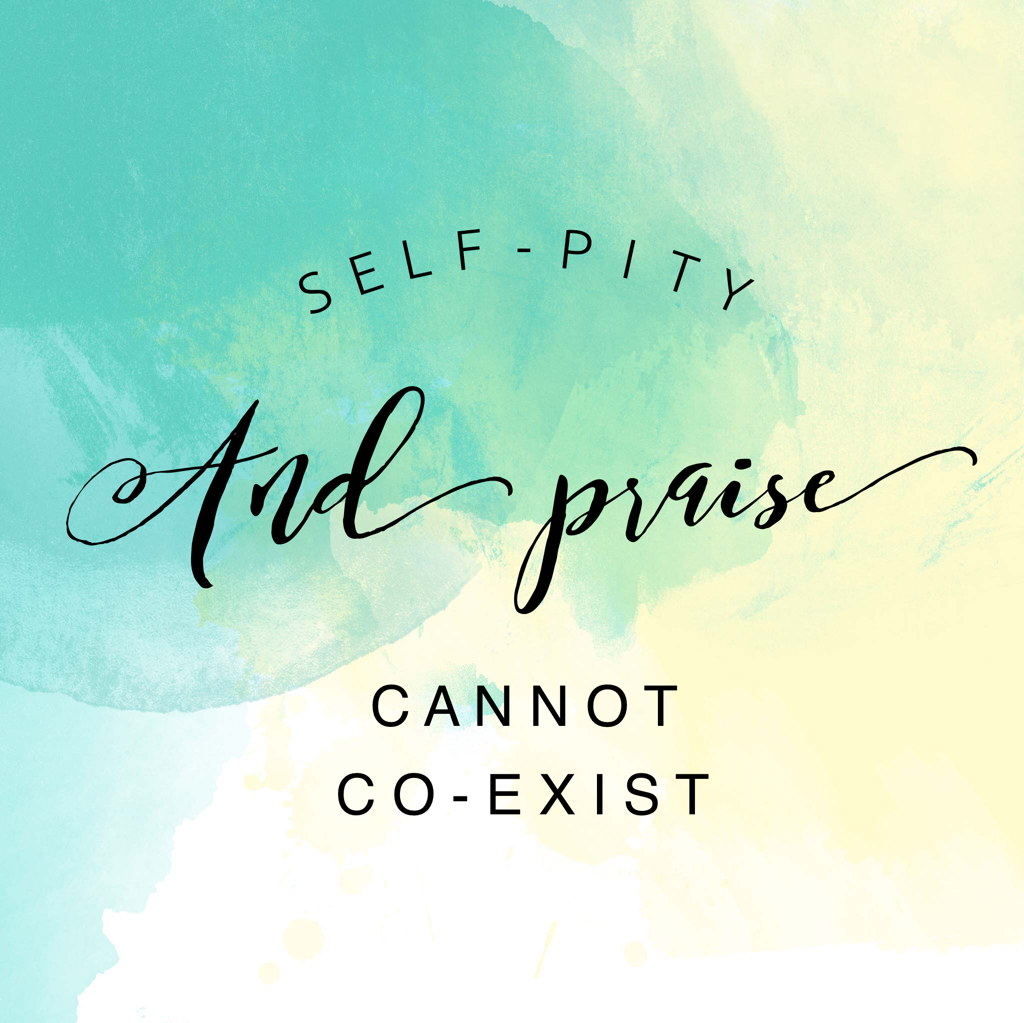
When hard times come we can either pity ourselves or praise God. I understand that there are other reactions we have and emotions we feel; but often our responses will stem from and will more closely align to pity or to praise. Think back with me over the last year or so. When COVID-19 struck with all its tyrannical restrictions, were your responses closer to pity or praise? When you recognize that the economic struggles and emptying store shelves are due to a government’s agenda of mishandling this “crisis” does your mind move more quickly to pity or praise? When illness strikes you or a loved one, what does the God of heaven see as He looks down upon your frail humanity? Is it trusting in Him with worship and praise or do you more closely resemble the Israelites who were murmuring over a lack of water only three days after praising God for bringing them through the Red Sea?
Admittedly, I, myself, am a slow learner; but I’m grateful for the example of those around me who choose praise. When my parents came down with cancer all I saw was praise and reliance on their Creator. My co-worker, in desperate need of a kidney transplant shows no self-pity but plenty of praise to the One in control of all things. Please understand, one can have questions and sadness about the situations they find themselves in without plummeting to self-pity. How often did David praise God in the midst of such internal struggles?
Dr. Frank Crane, Presbyterian minister and columnist who wrote a set of ten volumes of “Four Minute Essays,” observed, “Pity is a glorious and creditable attribute—when it flows out toward another. Then it is like the mountain brook, carrying health and joy to all who drink of its cool flow or even gaze upon its happy play. But pity, when it turns upon self, is like a stagnant pool, covered with hateful scum, and concealing ugly, slimy things in its foul ooze. One who is sorry for himself is already half-beaten. …Self-pity is the collapse of all the faculties, it is cowardly surrender in the face of the enemy.”
In another of Dr. Crane’s “Four Minute Essays” he shares this example. “I know a young man, twisted, crippled, paralyzed, unable to feed or dress himself, yet who sits daily by his window with a shining face. He is cheerful, helpful, a fountain of joy to all who know him. The boys love to gather in his room at night and play cards and tell stories. One would think he would be a gloom and a burden; his is an uplift. You soon forget his limitations. You soon cease to pity him, for he does not pity himself. He does not drain you; he inspires you.”
What about you? In the midst of adversity or disappointment, do you drain or inspire others? Those who are believers in Christ have every help available to us and every reason to inspire those around us, regardless our circumstance.
I suppose the question is: Where do you turn to during these trying times we all face? We can either turn to the One who is in control of all things, Who can truly make a difference both in us and in our circumstances or we can turn inward becoming “like a stagnant pool, covered with hateful scum.” Job’s friends were of no help; he would need to focus inward or upward. Job chose wisely, “Though He slay me, yet will I trust Him.”
 The Word of God promises that we will face trying times; and as we see the world around us, it is proof again that God knows the end from the beginning.
The Word of God promises that we will face trying times; and as we see the world around us, it is proof again that God knows the end from the beginning.
What kind of counsel, or self-talk, do you give yourself? Paul exhorts us to “Be careful for nothing; but in every thing by prayer and supplication with thanksgiving let your requests be made known unto God.” David rejected the temptation to wallow in self-pity, instead, encouraging himself in the Lord: “Why art thou cast down, O my soul? and why art thou disquieted in me? hope thou in God: for I shall yet praise him for the help of his countenance.” (Psalm 42:5)
That’s the kind of hope we need. Think of your life as a music box. Hope in God winds it perfectly, allowing us to be beautiful music in the ears of God and those around us. When we put our own hand to the turnkey during trying times we often over wind it, breaking the spring and stopping the music meant to come from our lives. It takes discipline for such self-talk and trust; but it is the difference between joy and a downcast spirit.
“Hope thou in God: for I shall yet praise him for the help of his countenance.”
To listen to a Decency Minute based on this article, Click Here.
To view this article in your browser, Click here
For more information, articles and newsletters, please check out our website at https://americandecency.org/
You can support ADA financially by visiting: https://give.cornerstone.cc/americandecency

Call us:
231-924-4050Email us:
info@americandecency.orgWrite us:
American Decency AssociationCopyright 2025 American Decency